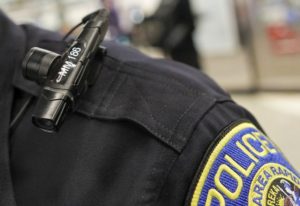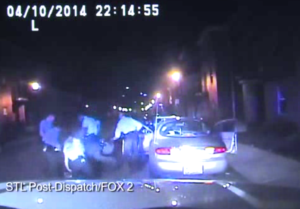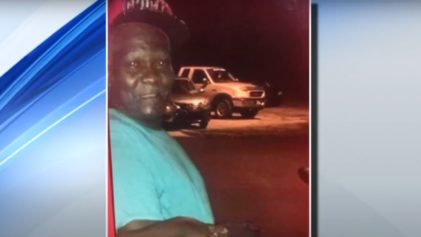
The Black community has been voicing serious concerns that police body cameras alone won’t be enough to stop police brutality and increase officer accountability. As videos of police brutality, like the chokehold death of Eric Garner, are still failing to lead to any indictments against police officers, it has become apparent that the presence of police body cameras won’t mean nearly as much as the policies that are put in place behind them.
Disturbing new footage hit the web that revealed a group of police officers repeatedly using Tasers on a man they pulled over during a traffic stop.
Reports suggest that Cortez Bufford made an illegal U-turn and parked abruptly before officers pulled up behind him.
Officer Nathaniel Burkemper alleged that Bufford refused to give the officers his name and also refused to get out of his car.
From that point forward, madness ensued.
The video shows officers pulling Bufford out of the car as more officers swarm in and wrestle him to the ground. A few seconds later, Bufford can be heard screaming as the police use their Tasers on him twice.
The physical altercation was disturbing, but not nearly as troubling as what happened next.
In the midst of the altercation, a female officer identified by Think Progress as Officer Kelli Swinton gives a grim warning to her colleagues.
“Hold up,”Swinton yells. “Hold up, y’all. Hold up. Hold up, everybody, hold up. We’re red right now, so if you guys are worried about cameras, just wait.”

Bufford filed a lawsuit in January accusing the officers of using excessive force that left multiple “abrasions to his fingers, face, back, head ears and neck.” He said his medical bills amounted to more than $6,000.
No reports of disciplinary action against the police officers have surfaced although their decision to cut off the camera did allow for the charges against Bufford to be dropped.
He was charged with illegal weapon use and a misdemeanor charge for resisting arrest.
It’s a troubling incident that makes many observers feel even more doubtful about police body cameras having any success.
What it does highlight is the need for thorough, specific guidelines about how officers are to use the cameras. If there are no consequences for officers who turn off the body cameras, the cameras will essentially be worthless. Especially since this isn’t the first time that such a situation has occurred.
Officers in Los Angeles were also caught disabling their antennas on certain vehicles that were about to go patrol low-income neighborhoods.
So while researchers have noted the potential that police body cameras and other forms of surveillance have to make a difference in the force, the lack of thorough police guidelines and regulations and the lack of a fair prosecution process for officers accused of brutality could quickly cause any hope that was sparked by body camera proposals to diminish.


